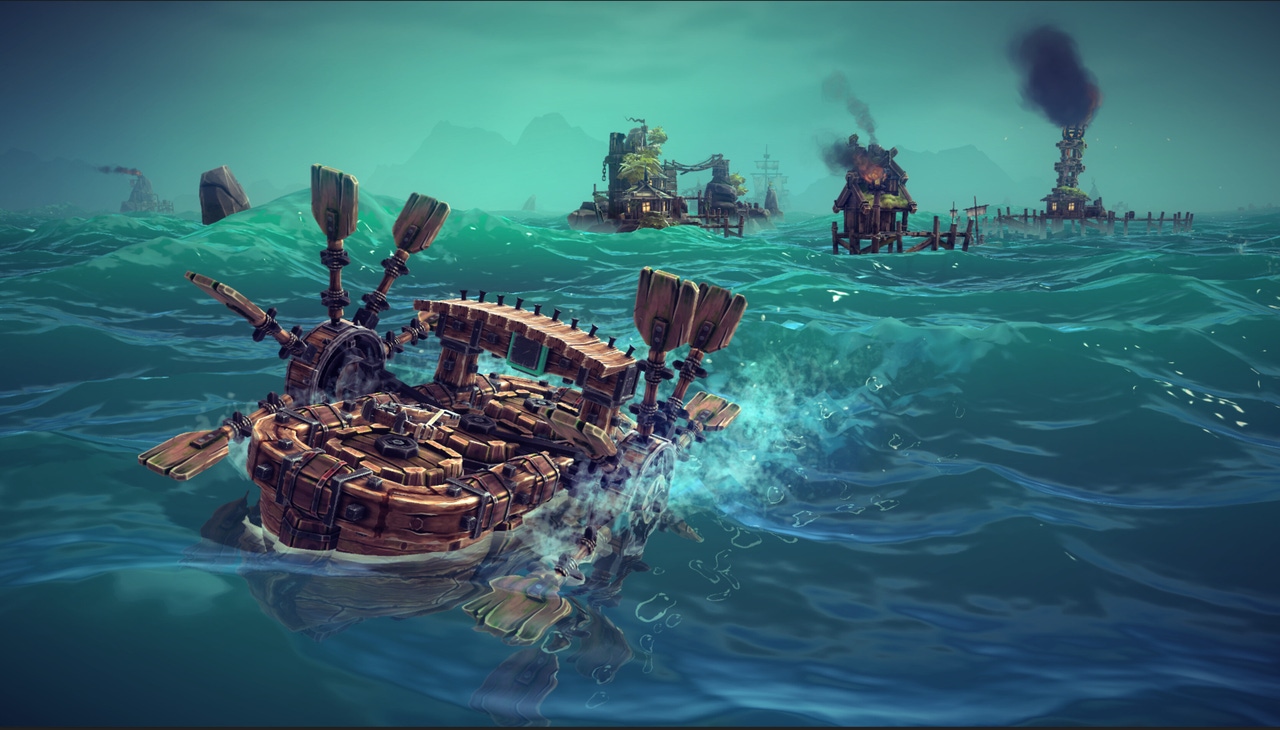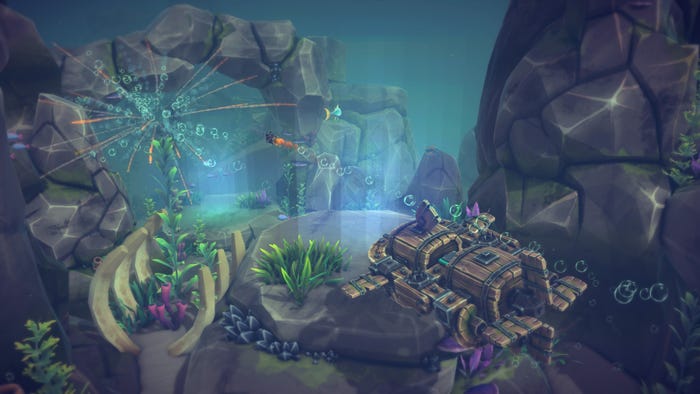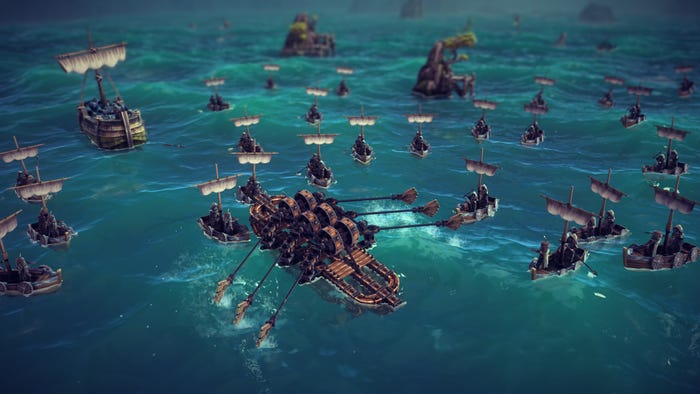Trending
Opinion: How will Project 2025 impact game developers?
The Heritage Foundation's manifesto for the possible next administration could do great harm to many, including large portions of the game development community.
After years working in silence, Spiderling Studios has surfaced with with a surprise oceanic DLC that adds water physics to Besiege.

Besiege, the 2015 Early Access phenomenon that allowed players to build utterly bananas physics-driven siege engines, is back with a new downloadable content pack called Besiege: The Splintered Sea. Spiderling Studios has taken another technical leap forward by implementing new water-based systems that shake up what the mighty machines players have concocted are capable of.
Players can now lay siege to fortresses on land or sea not only with massive sailing ships, but also with submersibles firing from deep under water. Any developer who's had to program boat physics can attest to how difficult designing such systems can be.
In a conversation with Game Developer, Spiderling Studios lead producer Toby Hawkins and publishing director Stefan Metaxa shared some details about producing such an ambitious expansion—revealing that to make the oceanic physics system the best it could be, they needed to retreat from the idea of Early Access and silently work on an expansion without input from players.
According to Hawkins and Metaxa, water physics had long been a requested feature from players during the 5-year Early Access development of Besiege. But as mentioned before, that's a very, very expensive request.
With Besiege's journey wrapping up in 2020, the team had time to evaluate how it could implement the feature, which was something they'd genuinely wanted to explore. "How can you pass up an opportunity like that?" Hawkins recalled when explaining the decision to implement underwater physics along with the surface-level system. They evaluated two options: returning to Early Access with a sequel, or submerging to the depths to quietly work on a downloadable expansion.
The expansion won out. Even though Spiderling Studios benefitted from a vibrant community of passionate players, they recognized Early Access could make developing these complex systems more difficult, and player feedback wouldn't solve problems faster.

Image via Spiderling Studios.
"We don't get the amount of feedback that you would get if you did Early Access, Hawkins said. "But at the same time, we can be a bit more creative and take risks with what we're doing."
Because water physics would touch every system of Besiege, getting it wrong would impact the game on a "large scale." Working in a silo allowed Spiderling Studios to massively rewrite the system as it needed to without disrupting the player experience.
In addressing this topic, he revealed a key fact for any developer making a simulation game in Early Access: players invested in these games are constantly making creations they become very attached to. That means the studio made it basic procedure during the base game's development to ensure player machines "always keep working" no matter what changes are introduced.
There were other reasons to avoid another trip down Early Access lane. Since 2020, player expectations for the process have changed, and it's more important than ever to make sure players are getting their money's worth.
Spiderling Studios began its Early Access journey in a completely different era. In 2015 there weren't many high-profile examples of developers making the practice a business model, and studios risked being accused of selling "incomplete" games to get a quick buck.
Besiege was one of the games that showed the program's potential. Years later, developers like Supergiant Games and Larian have made it a massive popular feature, allowing even story-based single player games Hades and Baldur's Gate 3 to get in on the collaborative development process.
But the stigma over releasing "incomplete games" hasn't gone away. If anything, Metaxa thinks it's intensified. "It's become clear that there is a level of expectation because of the stigma associated with Early Access that players expect something very high quality already. It's more difficult to get away with the idea of 'okay, we're just going to release something half-finished.'"

Image via Spiderling Studios.
"It has to be this very polished—maybe smaller scoped—version of the game."
That's not a bad thing, in his view. But it does mean Early Access launches are now practically as intense as 1.0 game launches. "You have to make sure that your Early Access is going to be as successful as possible early," he said, noting that many developers have had strong debuts—but couldn't carry the momentum forward for hitting 1.0.
There was one other fun outcome of going dark for the DLC development period. During development, Metaxa said the team tossed around the question of "does everyone still care about Besiege?" Making the DLC proved to be a test on whether players wanted more content, and maybe even if they'd want a sequel somewhere in the future.
People do in fact, still care about Besiege. Metaxa said it was "really amazing" for the development team to see the reaction of an audience who hadn't expected the DLC at all. "People were so hyped," he recalled.
Just like Early Access development, designing DLC can be an act of managing expectations. And when it pays off, your players will be ready to take to the high seas atop their massive, unwieldy creations.
You May Also Like